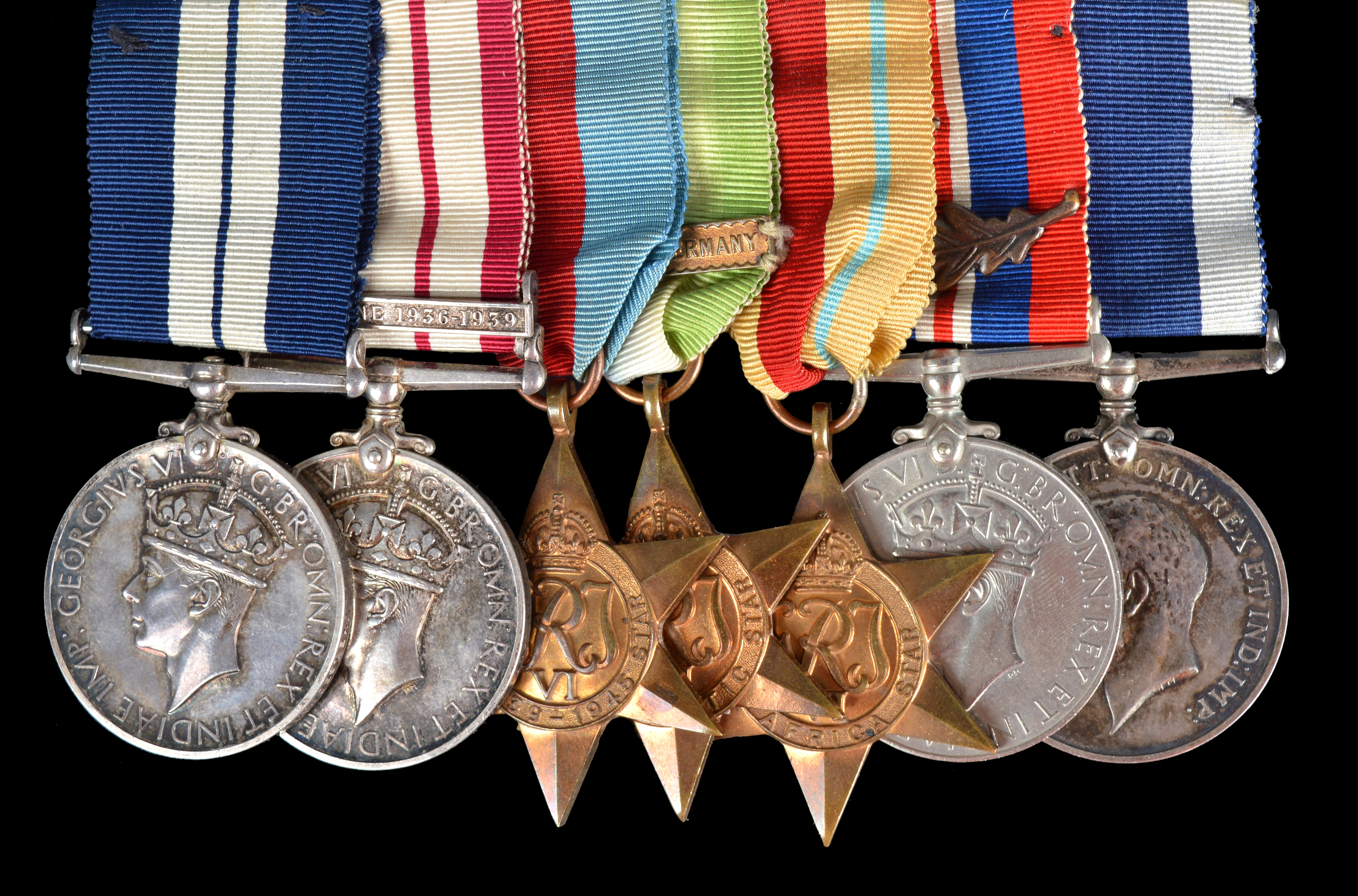Medals & Coins, Arms & Armour - 20th November 2019
Lot 2
The Battle of Cape Matapan Distinguished Service Medal group of seven medals to Chief Engine Room...
Estimate £600 - £800 | Hammer £1200
+ Buyers Premium
Description

The Battle of Cape Matapan Distinguished Service Medal group of seven medals to Chief Engine Room Artificer William Henry Waldron, Royal Navy: D.S.M., George VI (W.H. WALDRON. C.E.R.A. HM.S. GLOUCESTER.); Naval General Service 1909-62, George VI, clasp: Palestine 1936-1939 (M. 34941 W.H. WALDRON. A/ C.E.R.A. 2, R.N.); 1939-45 Star; Atlantic Star with France and Germany bar; Africa Star; War Medal 1939-45 with oak leaf emblem; Royal Navy Long Service and Good Conduct, George V, (M. 34941 W.H. WALDRON. A/ C.E.R.A. 2. H.M.S. ADVENTURE.), mounted for wearing, good very fine or a little better; together with this man's initialled silver cigarette case, a small quantity of attendance and prize medals, and the postal box and transmission slip for the Second World War medals.
D.S.M: London Gazette 03/02/1942, investiture 19/05/1942.
M.I.D.: London Gazette 01/01/1944, H.M.S. Selkirk.
The Battle of Cape Matapan, 28th March 1941, was the first major fleet action for the Royal Navy since Jutland in 1916, and the last such action ever to be fought in a European theatre of war. The British victory concluded the work of nullifying the formidable threat of the Italian Navy that had started at Taranto four months previously. The aging ships of the British fleet were outclassed by the faster and better armed Italians, and it was by their boldness and superior seamanship that they prevailed, sinking three heavy cruisers and two destroyers for the loss of a single aircraft. The British cruisers played a key roll: upon making contact with the enemy they came under heavy fire - Gloucester in particular - and withdrew, luring the Italians towards the British Battle Squadron under Admiral Cunningham, who was determined to force a confrontation. When the Italians in their turn withdrew, Gloucester and the other cruisers gave chase to try and maintain contact. Sustaining the badly worn propulsion gear of the British ships was absolutely crucial, and it is with this in mind that the significance of C.E.R.A. Waldron's D.S.M. recommendation may be appreciated:
"For zeal, devotion to duty and exemplary conduct throughout the day and night of the action and particularly during the time the ship was in contact with the enemy and developing high power. He personally tended the port inner plummer block bearing which was causing considerable anxiety at this time, and it was his work on this bearing 36 hours previously, working at night under hurried conditions, which made it possible for the ship to steam so successfully".